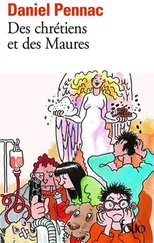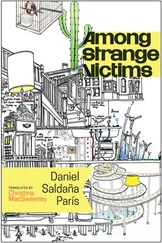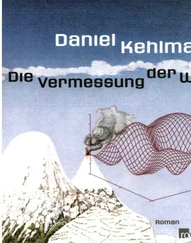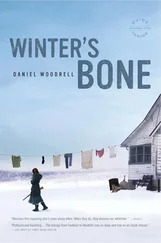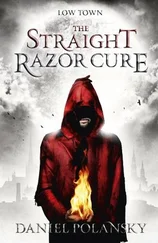“And if he’s dead?” asked Georg.
Marie shrugged. How warm the tiles were. You could doze off, but you mustn’t, you had to keep your heels stuck tight in the gutter so as not to slide off the slope of the roof. “If he’s dead, they’d have found him.”
“He could be in the forest,” said Georg.
“What sort of forest?”
“The forest. Where the wolves are.”
The bumblebee landed somewhere, paused for a moment or two, then flew off again. Marie blinked. A cloud was looking like a bicycle with a man on it who had a hat but no head.
“Does space up there just keep on going?” asked Lena. “Or does it end somewhere?”
“Maybe there’s a wall,” said Marie.
“But even if there is,” said Georg, “you can always keep flying. You could make a hole in the wall. It can’t come to an end. It can never come to an end.”
“But if the wall is solid,” said Lena. “Really, really solid?”
“You could still make a hole in it,” said Georg.
“The most massive wall in the whole world?”
“Then imagine you have the pointiest tool.”
For a while none of them said anything. The buzzing of the bumblebee rose, then fell, then rose again.
“Matthias is stupid,” Lena said eventually.
“Yes he is,” said Georg.
“Why?” asked Marie.
“Marie and Matthias,” sang Lena. “Matthias and Marie. Marie and Matthias. Matthias and Marie.”
“When’s the wedding?” asked Georg.
Without opening her eyes, Marie made a fist and punched him. She hit him smack in the middle of his upper arm, and Georg let out a scream. Marie didn’t like Matthias that much, and of course both of them knew this. It was just the usual talk up on the roof.
Once Mama had caught them as they were climbing down. She had worked herself up into a terrible state. Georg and Lena had been forbidden to visit for a while, as had Jo and Natalie, even though Natalie had never ever been up on the roof. Marie had given her solemn word never to do anything so dangerous again, but she had crossed her fingers in the pocket of her jeans so it didn’t count, and luckily Mama soon forgot about it again. Mama forgot things quickly. She hadn’t been home a lot recently, there were costumes to try on and people to meet, and lots of telephone calls, and she had to have regular meetings with the divorce lawyer, a courtly gentleman with a beard, big ears, and eyes like a seal.
Her father came twice a week and took her to the zoo or the cinema. She wasn’t that interested in animals, and the films were always the wrong ones — he simply didn’t get what you wanted to see if you were eleven. Sometimes she also went to visit him in the presbytery. It was a secret that he was living there, she wasn’t allowed to tell anyone, not her grandparents, not Ligurna, not anyone at school, and most of all not Mama.
The presbytery smelled of mothballs and cooking. Her father slept on a couch next to the TV under a picture of Jesus looking as if he had a toothache. Her father always wore jeans and a red-checked shirt, and sometimes he wore a baseball cap that said I  Boston on it. When she asked him when he washed the shirt, he got cross and said that he had two others just like it. He no longer owned a computer, or a phone, or a car, and only one pair of sneakers. She had never known him to be in such a good mood.
Boston on it. When she asked him when he washed the shirt, he got cross and said that he had two others just like it. He no longer owned a computer, or a phone, or a car, and only one pair of sneakers. She had never known him to be in such a good mood.
“The crisis!” he cried as they were walking around the zoo. “Nobody saw it coming. It’s like the end of the world. And eight months ago nobody was even dreaming of it!”
They stopped. A gnu with empty eyes returned Marie’s glance.
“Real estate derivatives. If only we’d predicted it, we could have made billions! But nobody predicted it. The exchange rates are in free fall, not even the banks can borrow money.” He clapped his hands. “And everyone knows it, they all keep talking about it, nobody wonders about it, do you understand? Nobody has any questions! Do you understand?”
Marie nodded.
He squatted down. “Everyone’s losing money,” he said in her ear. “Everyone’s losing everything, do you understand?”
Marie nodded.
“Nobody’s asking about their own money now. They’re all expecting it to be gone, they’re reckoning on it because it’s happening to everyone. It’s a miracle. Not one client is asking what’s happened to his investments.”
Marie knew the way you were supposed to look so that it seemed you were understanding everything. She used this look in school, and it was often enough to get her good marks. And she always put it on when her father decided to tell her things that were important. He believed that the two of them were alike and that she understood him better than anyone else did.
“Marie,” he said. “You understand me better than anyone else does.”
Seeking help, she looked over at the gnu.
“If, for example — it’s just an example, Marie! If you’ve made losses, and you were expecting that — but then suddenly no one’s asking questions anymore!”
“Are we going to go see the tigers?”
He leapt up and clapped his hands again, so loudly that a woman who was passing, pushing a baby carriage, looked at him reproachfully. “And Kluessen’s in the hospital! It may be a long time, he could even die, who knows! I’ll soon be done with the son. Who could have seen it coming!”
He put his hand on her shoulder and pushed her forward. She wasn’t surprised that they were heading for the exit. She wasn’t going to see the tigers today either. Her father never went to see the tigers.
“Finally!” called Georg when he saw them coming back. He was sitting on the garden fence wearing his Robin Hood cap, he’d tied on a quiver, and he had a bow in his hand. He’d obviously been extremely bored.
“Are they sharp?” asked her father.
“Not sharp, pointed. No, they’re not pointed.”
“They look pointed.”
“But they’re not.”
Her father paused for a few seconds before saying, “You’re not allowed to shoot with pointed arrows. It’s too dangerous.”
“They’re not pointed,” Georg said again.
“Honestly!” said Marie.
“Is that true?”
Both of them nodded. Georg even laid his hand on his heart. But her father didn’t see this because he was looking absentmindedly at the other side of the street.
“I’ve never liked this house.”
“Me neither!” said Marie.
“Were you ever in the cellar?”
“There’s a cellar?”
“No. There isn’t, and you’re not going down there!”
“Is it true that you lost all that money?” asked Georg.
“The crisis. Completely unexpected. No one saw it coming. Do you watch the news?”
Georg shook his head.
“Do you know what derivatives are?”
Georg nodded.
“And what mortgage-backed CDOs are, do you know that too?”
“Yes.”
“Really?”
Georg nodded.
“Be careful with the arrows.” He gave the house across the street another anxious look, then stroked Marie’s cheek and left.
“They really aren’t pointed!” Georg called after him.
“Promise!” called Marie.
As she was watching her father go, she thought of Ivan again. It was only recently that she’d grasped that maybe the riddle would never be solved. Never, which meant: not now and not later and not even much, much later, not in her whole life and not even after that. She often found herself thinking how he’d once explained to her in the museum why artists painted ugly stuff like old fish, rotten apples, or boiled turkeys: it wasn’t because it was about the things themselves, it was about painting the things, so — here he had looked at her solemnly and spoken very quietly, as if he were betraying a secret — so what they were painting was painting itself. Then he’d asked her if she understood, in the same voice her father always used when he asked her the same question, and she’d nodded the same way she always nodded. Her uncle had always seemed a little weird to her, because he looked so exactly like her father and had the same voice and yet was someone else. Things were sometimes strange. People painted fish in order to paint painting, bicycles fell over when you set them on their two wheels but were perfectly stable on these same wheels when you rode off on them, there were people who looked exactly like other people, and sometimes someone disappeared from the world just like that, on a summer day.
Читать дальше
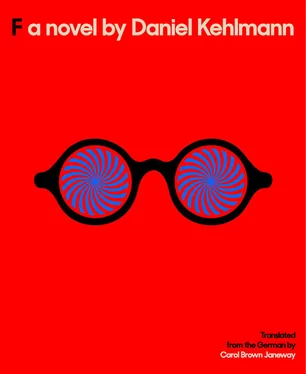
 Boston on it. When she asked him when he washed the shirt, he got cross and said that he had two others just like it. He no longer owned a computer, or a phone, or a car, and only one pair of sneakers. She had never known him to be in such a good mood.
Boston on it. When she asked him when he washed the shirt, he got cross and said that he had two others just like it. He no longer owned a computer, or a phone, or a car, and only one pair of sneakers. She had never known him to be in such a good mood.
